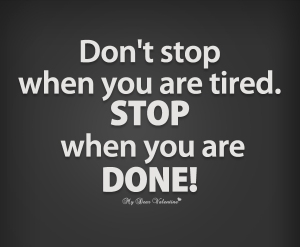Tag: Education
“Social media is more than technology, it is a social science.”[1] Social media has the transformative potential to change behaviour, to stimulate discussion, and to increase awareness of current events and issues. Social media has an ability to feed the hungry, quench the thirsty, and bring love to where there was none. “Realizing this transformative potential requires vision, strategy, engagement, talent, and commitment to moving forward.”[2]
Source: Insideview Social Media Infographic
The world has changed
Modern education
According to the University of Manitoba researcher Christine Greenhow, social media sites “benefits may just outweigh any risks.” In her 2009 video, Greenhow argues that social media can spark creativity, interest, and change.[3] Greenhow’s research shows that low income families have an ability to connect with those with influence. Moreover, social media can help people develop communication skills, which have positive effects on self-esteem.
In their 2012 article, Twitteracy: Tweeting as a New Literacy Practice, Christine Greenhow and Benjamin Gleason argue that “instructors and students can use Twitter to ask and answer questions, brainstorm, focus or extend in-class discussions, help students connect, collaboratively generate information, and learn concise writing styles.”[4] It becomes clear that social media has become an integral component to modern education. By neglecting the impact of social media, one can hamstring, if not, impede learning.
In her 2012 video, Greenhow states that social media has changed the way consumers do business. For example, Greenhow indicates that consumers have more options when choosing a health practitioner. Patients have the ability to review and rate physician performance, where at one time, they could not. She clearly implies that the “use of social media affects the means of production.”[5]
Real benefits of social media
At The Economist’s World in 2012 Festival on December 3rd 2011 in New York City, a panel of four experts stated that social media has made life for many people that much more interesting. The positive effects of social media have transcended the daily lives of many people, even so much as a trip to the grocery store.
Source: Why go social?
Building communities
Dale Carnegie states in How to Win Friends and Influence People, making friends starts from “a deep, driving desire to learn.”[6] Essentially, it is “a vigorous determination to increase your ability to deal with people.”[7] Taking the time to understand what makes people happy creates a foundation and starting point for conversation. According to Carnegie, what people want are the following:
- health and the preservation of life
- food
- sleep
- money and things money will buy
- life in the hereafter
- sexual gratification
- the well-being of our children
- A feeling of importance
Social media is a mechanism that helps people achieve belonging, understanding, and enlightenment. A Facebook analytic search reveals that millions of people have expressed interests in the following topics:
| Health | 157.3M | Food | 490.1M |
| Sleep | 86.9M | Money | 77.7M |
| Afterlife | 8.6M | Sex | 52.3M |
| Parenting | 54.8M | Self-esteem | 6.8M |
Social media is an instrument for strangers to connect with similar minded individuals. For example, if one wants information about sleep, one can potentially connect with 86.9 million people on Facebook. On socialmention.com, a quick search revealed the following statistics:
| Health | 4secs/mention | Food | 32secs/mention |
| Sleep | 3secs/mention | Money | 3secs/mention |
| Afterlife | 23secs/mention | Sex | 4secs/mention |
| Parenting | 21secs/mention | Self-esteem | 10secs/mention |
The data shows that social media has revolutionized education, communication, and business. Every 21 seconds, a new post on parenting is available on social networks. It is undeniably clear that social media fosters the creation of new ideas, changes in behaviour, and brings people and communities together.
Social media in the political process
Social media has transformed the political landscape. Former leader of the Liberal Party of Canada Michael Ignatieff claims that social media has “increased participation and created communities of voters and activists.”[8] He argues that “when we use social media to find new methods of developing policies, the best and the most imaginative thinking comes from social networks. That’s the power of social media.”[9] By bringing communities together through social media, political leaders can increase voter participation in the political process.
New challenges
Stalking, bullying, privacy concerns, and sexual harassment are real issues, but they happened regardless of social media. Parents, educators, and individuals have taken precautions to protect themselves from the ills of society for decades, even before the internet. People need to find ways to adapt to new societal trends or miss out on valuable networking and professional opportunities.
Comments?
How has social media informed you about people, current issues, and events? Do you think that social media is overrated? Why do you think people are afraid of social media? Let me know in the comments below.
[1] Joseph Ranseth, 2013.
[2] Cyberlearning Research Summit, 2012.
[3] Christine Greenhow, “Social Media Networking sites have educational benefits,” 2009.
[4] Christine Greenhow & Benjamin Gleason, Twitteracy: Tweeting as a New Literacy Practice, The Educational Forum, 76:4, 2012, 474, DOI: 10.1080/00131725.2012.709032
474.
[5] Christine Greenhow, “Help from Friends: Social Network Sites & the Future of Cyber Learning,” January 18, 2012.
[6] Dale Carnegie, How to Win Friends and Influence People, Simon and Schuster: New York, 1936, 12
[7] Carnegie, 12.
[8] Michael Ignatieff, “Michael Ignatieff on the Impact of Social Media,” January 13, 2010.
[9] Michael Ignatieff, “Michael Ignatieff on the Impact of Social Media,” January 13, 2010.



















